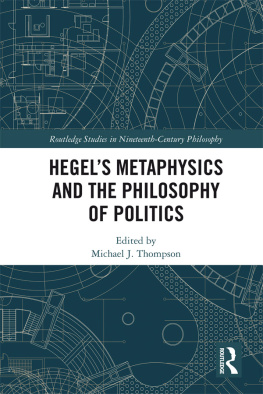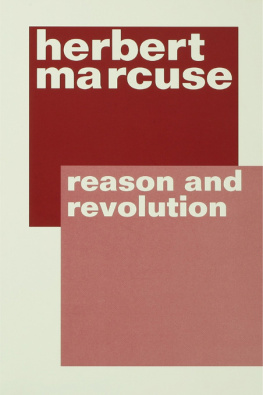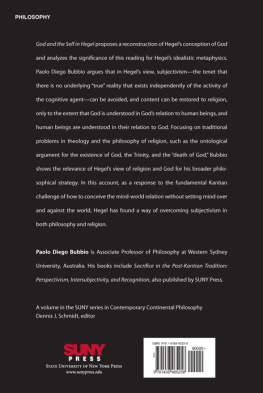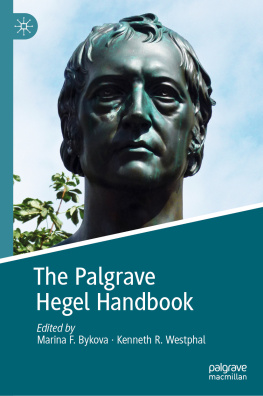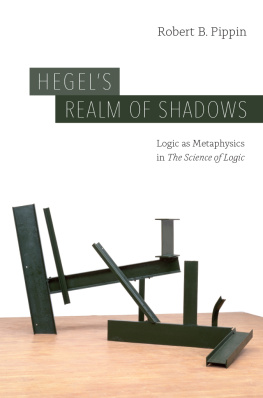Hegels Metaphysics and the Philosophy of Politics
The renaissance in Hegel scholarship over the past two decades has largely ignored or marginalized the metaphysical dimension of his thought, perhaps most vigorously when considering his social and political philosophy. Many scholars have consistently maintained that Hegels political philosophy must be reconstructed without the metaphysical structure that Hegel saw as his crowning philosophical achievement. This book brings together twelve original essays that explore the relation between Hegels metaphysics and his political, social and practical philosophy. The essays seek to explore what normative insights and positions can be obtained from examining Hegels distinctive view of the metaphysical dimensions of political philosophy. His ideas about the good, the universal, freedom, rationality, objectivity, self-determination and self-development can be seen in a new context and with renewed understanding once their relation to his metaphysical project is considered. Hegels Metaphysics and the Philosophy of Politics will be of great interest to scholars of Hegelian philosophy, German Idealism, nineteenth-century philosophy, political philosophy and political theory.
Michael J. Thompson is Professor of Political Theory in the Department of Political Science at William Paterson University. His most recent books include The Domestication of Critical Theory, The Specter of Babel: Political Judgment and the Crisis of Modernity and Twilight of the Self: The Eclipse of Autonomy in Modern Society.
Routledge Studies in Nineteenth-Century Philosophy
An Interpretation of Nietzsches On the Uses and Disadvantages of History for Life
Anthony K. Jensen
Hegels Philosophical Psychology
Edited by Susanne Herrmann-Sinai and Lucia Ziglioli
Nietzsche and the Philosophers
Edited by Mark T. Conard
Schopenhaurs Fourfold Root
Edited by Jonathan Head and Dennis Vanden Auweele
Nietzsches Psychology of Ressentiment
Revenge and Justice in On the Genealogy of Morals
Guy Elgat
The Kantian Foundation of Schopenhauers Pessimism
Dennis Vanden Auweele
Nietzsches Constructivism
A Metaphysics of Material Objects
Justin Remhof
Hegel and Ancient Philosophy
A Re-Examination
Edited by Glenn Alexander Magee
Hegels Metaphysics and the Philosophy of Politics
Edited by Michael J. Thompson
For more information on this series, please visit www.routledge.com
Hegels Metaphysics and the Philosophy of Politics
Edited by Michael J. Thompson

First published 2018
by Routledge
711 Third Avenue, New York, NY 10017
and by Routledge
2 Park Square, Milton Park, Abingdon, Oxon OX14 4RN
Routledge is an imprint of the Taylor & Francis Group, an informa business
2018 Taylor & Francis
The right of the editor to be identified as the author of the editorial material, and of the authors for their individual chapters, has been asserted in accordance with sections 77 and 78 of the Copyright, Designs and Patents Act 1988.
All rights reserved. No part of this book may be reprinted or reproduced or utilised in any form or by any electronic, mechanical, or other means, now known or hereafter invented, including photocopying and recording, or in any information storage or retrieval system, without permission in writing from the publishers.
Trademark notice: Product or corporate names may be trademarks or registered trademarks, and are used only for identification and explanation without intent to infringe.
Library of Congress Cataloging-in-Publication Data
Names: Thompson, Michael, 1973 editor.
Title: Hegels metaphysics and the philosophy of politics / edited by Michael J. Thompson.
Description: 1 [edition]. | New York : Taylor & Francis, 2018. | Series: Routledge studies in nineteenth-century philosophy ; 17 | Includes bibliographical references and index.
Identifiers: LCCN 2018004857 | ISBN 9781138288515 (hardback)
Subjects: LCSH: Hegel, Georg Wilhelm Friedrich, 17701831. | Metaphysics. | Political sciencePhilosophy.
Classification: LCC B2948 .H35443 2018 | DDC 193dc23
LC record available at https://lccn.loc.gov/2018004857
ISBN: 978-1-138-28851-5 (hbk)
ISBN: 978-1-315-26783-8 (ebk)
Typeset in Sabon
by Apex CoVantage, LLC
Contents
MICHAEL J. THOMPSON
Part I
The Relation of Hegels Metaphysics and Political Theory
PETER J. STEINBERGER
ANDREW BUCHWALTER
ANGELICA NUZZO
ERIC GOODFIELD
Part II
Ontology, Metaphysics and Practical Reason
MICHAEL J. THOMPSON
SEBASTIAN STEIN
MICHAEL MORRIS
KEVIN THOMPSON
Part III
Metaphysics, History and the Structures of Ethical Life
CHRISTOPHER YEOMANS
JOSHUA D. GOLDSTEIN
DAVID KOLB
MATTHEW J. SMETONA
Michael J. Thompson
We live in a decidedly anti-metaphysical and even post-metaphysical age, or so we are told. Influential currents in contemporary social, moral and political philosophy, in particular, have been dominated in recent years by a perspective that places emphasis on a constructivist and pragmatic turn, where we are asked to focus on practices of the exchange of reasons, of recognition, justifications, and the kinds of social action that can generate discursive relations of rational agreement on moral questions and problems. This is viewed as non- or post-metaphysical in the sense that any kind of ontological quality to the objective world is no longer assumed, nor is there any legitimacy to claims of transhistorical forms of meaning or substance. As Jrgen Habermas has lucidly framed the post-metaphysical conception of modernity, it
is characterized by a rejection of the substantive rationality typical of religious and metaphysical worldviews and by a belief in procedural rationality and its ability to give credence to our views in the three areas of objective knowledge, moral-practical insight, and aesthetic judgment.
For Habermas, and many other contemporary philosophers, Hegels metaphysics has been grouped together with the pre-critical metaphysical doctrines of Western philosophical thought. The move toward a pragmatic, procedurally and intersubjective-cognitivist stance has led even further toward a cleavage between Hegels metaphysical project and the self-described aims of modernity. Objectivity is now construed as the congealed practices and agreements to which rational agents commit themselves. But what has been lost is a connection to the social as more than our cognitive and epistemic practices. Gone from view now is the idea that the social itself as a category possesses ontological weight, that there is some richness to it being distinct from its parts. The fact that Hegel has been decidedly swept up in this new paradigm shift therefore raises serious questionsquestions with which the essays gathered in this volume seek to grapple.
The reasons for revisiting Hegels metaphysical and ontological project are perhaps an important concern to address. One cause for this reexamination of Hegel can be found not in the academic world of technical philosophy but in the increasing pressures of the culture and institutions of the liberal conception of society and the individual, on one hand, and from the deepening effects of market capitalism, on the other. In both cases, we have been asked to consider the idea that the social world does not have ontological validity but is, instead, the result of the intentional actions of individuals. The concept of the good, indeed of the good as a common good, as a normative category has been displaced by the idea of individual conceptions of the good. The shift away from Hegels metaphysical ideas was carried forward by the emergence and dominance of analytic philosophy in Anglo-American thought throughout the postwar years. A move away from the metaphysical ideas at the heart of Hegels project, not to mention the increasingly hostile political environment in which American philosophy operated in the shadow of anti-communist activities in the 1950s, meant a shift away from the concerns of continental metaphysics. The very idea that the social can be seen as possessing metaphysical or ontological features has granted the liberal-individualist thesis more weight than it deserves, and Hegels contributions to understanding modernityits promises as well as its current pathologiesare largely concealed from view.

